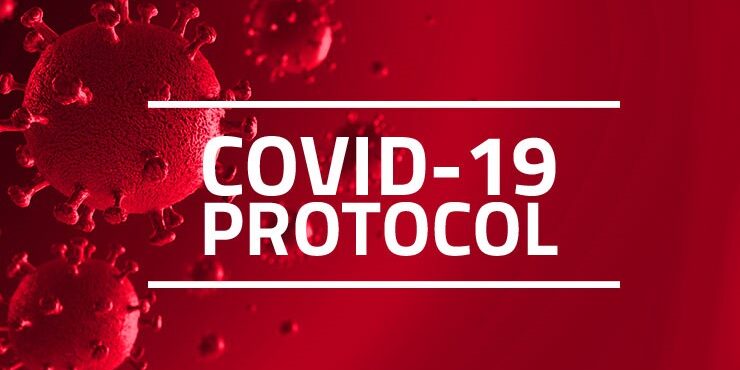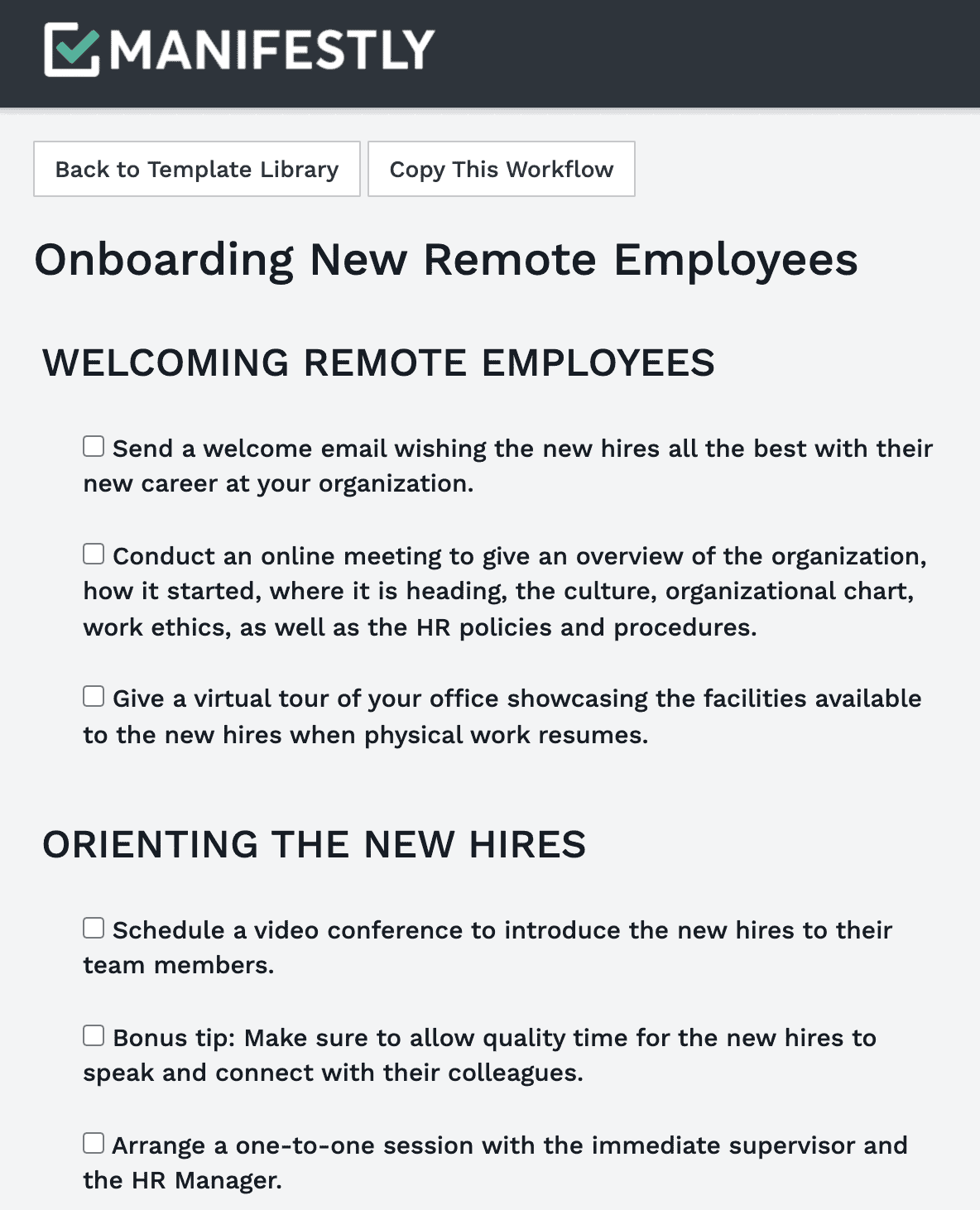Continuing with our series of posts to make the most of Checklists for Human Resources, this post focuses on the interview process.
Employee recruitment and selection is one of the most demanding and challenging HR processes in any firm. A good hire, on the other hand, is worth its weight in gold, as any recruiter knows. While prospective candidates will be looking for the greatest company to work for, you, as an employer, will aspire to hire the most talented and skillful candidates. This is crucial for any organization to sustain itself in the aggressively competitive business landscape. Also, if you are a budding startup striving to scale quickly, it is critical to hire excellent talent right from inception.
If your interview process is unplanned and disorganized, you will be at a higher risk of recruiting lousy employees. Also, it can have a detrimental impact on your company’s reputation as candidates are likely to build an impression about your firm based on their interview experience. Therefore, it is vital to provide a seamless and favorable interview experience for your candidates, especially if your organization is extremely brand conscious.
Irrespective of whether you are the employer, interviewer, or candidate, interviews can be a stressful experience for everyone involved and there is a chance that things might not work as planned. An interview checklist may help you mitigate such chaos and stay on track during the interview process. It can also be beneficial for ensuring uniformity and consistency of the interview process when choosing between candidates. In fact, by using the same interview framework, you can easily compare candidates and thereby make an ideal recruitment decision for your company.
Below we have a comprehensive Interview Checklist for Hiring Managers. It will not only help you avoid the most common hiring mistakes but will also guide you with best practices in conducting a professional interview. Follow these simple steps and get your interview process on track.
Before Conducting the Interview
You should allocate enough time to get ready for the interview before the candidate walks through the door. If you examine the candidate CVs beforehand, you may easily find answers to most of the typical questions that are generally asked in an interview. Instead, you can use the interview to delve into the talents, abilities, attitudes, and traits of the candidate. Having a clear idea of what you wish to learn about the applicant will aid immensely in the selection process and also help you make the best use of the interview. A well-planned interview process, in fact, will grant quality time to make the best hiring decision.
Here are some of the key points that Human Resource Managers should consider when planning a successful interview process.
- Firstly, you need to plan the steps of the interview process. Below is a list of things that needs to be decided at the planning stage.
- Identify the ideal candidate for the position; what type of qualifications, experience, and skills should the candidate possess.
- Map out the interview process; the number of interviews and how you are going to conduct them.
- Decide the time frame for the interview process.
- Familiarize yourself with the candidates’ resumes; their background, work history, career goals, etc. so that you can maximize your time at the interview.
- Mark any areas in the resume that is vague or unclear so that you can ask the candidate to elaborate on them during the interview.
- Bonus tip: You can conduct an initial phone screening to further narrow down the candidate pool before proceeding to in-person interviews.
- Compile a structured interview questionnaire. Here are some best tips that are worth checking out.
- Have a set of role-specific questions focusing on the job description.
- Personalize your questions to match with each candidate based on what you have learned from their CVs.
- Make your questions focused and unambiguous.
- Vary the style of questions so that you can analyze intangibles such as attitudes and personality.
Incorporate a set of behavioral and situational questions that allows candidates to express themselves in more detail. - For example, What is the toughest project you have handled so far and how well did you handle it?
- When was the last time you made a mistake and how did you rectify it? Have you made any changes at work, and did they help improve the performance?
- Develop an interview scorecard with a rating scale so that you can easily compare interviewees while avoiding any biases.
- Assemble the hiring team to have an initial discussion about the interview so that it can run smoothly. You may consider the following in your discussion
- Discuss the structure and the outline of the interview.
- Clarify the roles of the panel in the interview process.
- Set boundaries as to what questions to ask and what to avoid.
- Train them on how to handle the interview and how to rate a candidate in an interview.
- Schedule the interview and inform the candidates about the time, venue, and method of contact.
- Communicate in advance to the candidate how to prepare for the interview, the guidelines to follow, and the dress code so that they can demonstrate their best at the interview.
- Assign a responsible person to answer any queries that the prospects might have about the interview.
On the Day of the Interview
Just like an interview helps you determine whether or not the candidates are a suitable fit for your organization, keep in mind that they will also be evaluating your organization. In fact, the overall interview experience may have a significant impact on your candidates’ perception of the organization. Hence, it is important to be cautious of what you communicate and how you present your organization on the day of the interview.
From an optimistic perspective, an interview is also an avenue for an organization to market its name as a responsible employer. It is an opportunity to sell the job position so as to enhance the candidate’s interest and enthusiasm in the job role.
Even if you are a veteran interviewer, it is a good idea to double-check whether you are following the proper interview procedure as planned. The following checklist will guide you with some of the essential things that HR managers should pay attention to in order to ensure a successful interview process.
- Create a relaxed, stress-free, and distraction-free atmosphere where you can interact with the candidate in the most natural and effective way. This is applicable even if you are conducting a virtual interview.
- Get all materials required for the interview in handy; applicant resumes, interview questionnaire, scorecards, a notebook to take notes, etc.
- Assemble the interview panel to the scheduled venue at least 15 minutes before and get ready.
- Welcome the candidate by greeting him/her politely.
- Introduce yourself and the interview panel.
- Have a short informal chat to make the candidate feel at ease without jumping directly to the questions.
- Explain the interview process, its objectives, and the intended duration.
- Sell your company by giving an overview of your organization. You may discuss the following.
- Talk about the vision and mission and how the company tries to achieve it.
- The perks of working for your organization.
- Explain how the company culture benefits new workers.
- Demonstrate what the company does to make employees satisfied and successful at work.
- Mention the major accomplishments and any awards that your organization has won recently.
- Convey about the plans to expand or grow your company.
- Sell the position that needs to be filled explaining what the job role entails and the benefits that the candidate can reap if selected.
- Commence the interview by asking more general questions first.
- Give the candidate the opportunity to elaborate on his/her ambitions, interests, and opinions so that you can pinpoint certain behaviors that may have an effect on job performance and identify if their personality traits match your culture.
- Next, ask personalized questions that help you clarify anything about the candidate.
- Finally, move on to behavioral and context-based questions that let the candidate shine.
- Bonus tip: Following are a few things to keep in mind while conducting the interview.
- Always, maintain good eye contact with your candidates.
- Have a friendly and professional attitude.
- Be attentive to the answers that your candidates provide and their body language.
- Be reasonable with your questioning.
- Jot down effective notes while you are interviewing.
- Welcome questions from the candidate to show them that you genuinely care.
- Explain the next steps of the interview process. This should cover the following.
- Make it clear as to when the candidate will hear back from your organization.
- Discuss when the work will commence if the prospect gets selected.
- Elaborate more on the job, including working hours and the logistics.
- Conclude the interview in a way that appreciates the candidate’s time and interest in the job.
After the Interview
Making a decision about the best candidate is even more challenging than conducting an interview. It is a good practice to urge every interviewer to fill out a candidate evaluation form as soon as the interview is finished, while the details are still fresh in their minds. Regardless of which candidate you decide to proceed with, you want to maximize the interview experience for each applicant.
The following list will guide you with the next steps after concluding the interview.
- Sit with the panel and review the notes taken during the interview.
- Assess which candidates stood out the most and discuss why they can be a great addition to your organization.
- Bonus tip: In addition to your judgment on the candidate’s capability to perform the job, evaluate if they would be a good fit for your culture.
- Discuss everyone’s opinion about which candidate to be hired supported by logical evaluations.
- Make the final decision.
- Bonus tip: You can conduct a pre-employment test to further assess a candidate’s suitability for the position.
- Debrief with your interview panel to see what worked well and what did not and discuss suitable measures to improve the interview process in the future.
- Communicate the hiring decision to the superiors and the coworkers.
- Convey the good news to the selected candidate while congratulating him/her.
- Notify the other candidates politely that your organization has decided not to proceed with their applications.
For more insights, you can check out the HR Checklist for Recruiting, Selecting, and Hiring Employees for Remote Jobs by Manifestly.
Wrapping Up
A successful hiring process necessitates knowing how to conduct an interview. If you are in charge of major hiring choices at your firm, you will need to be able to conduct a quick, professional, and informative interview. It is never a good idea to walk into an interview blind, especially if you want to hire the top talent. It is always prudent to take the time and arrange the interview process. Having a holistic interview checklist for employers will help streamline your hiring process while optimizing the interview experience for your applicants.
You can find this Job Interview Checklist for Employers in the HR workflow checklist templates section of Manifestly.



